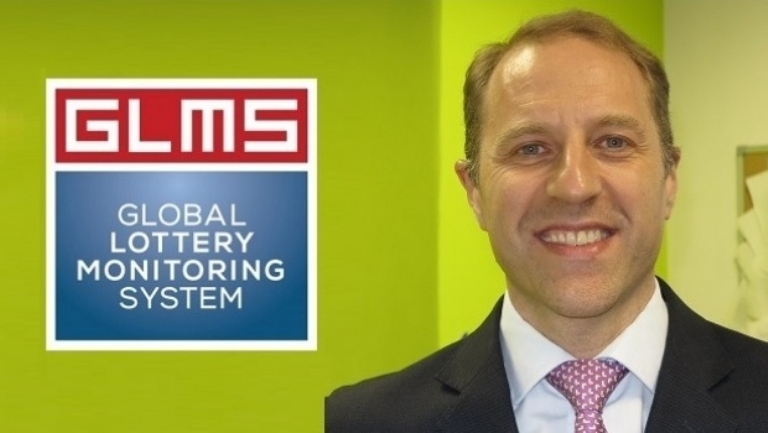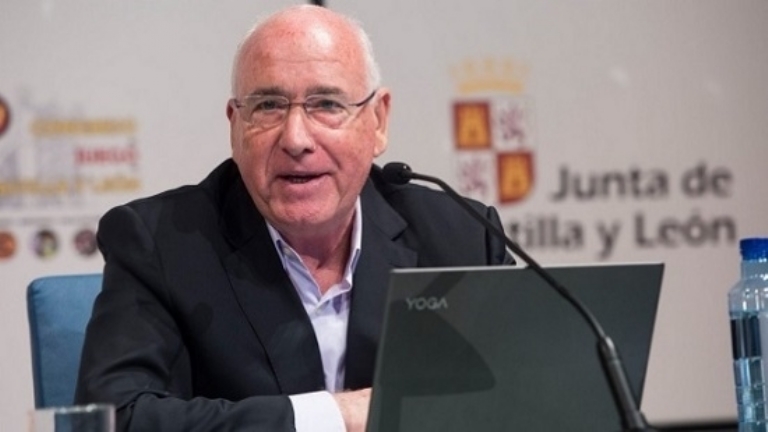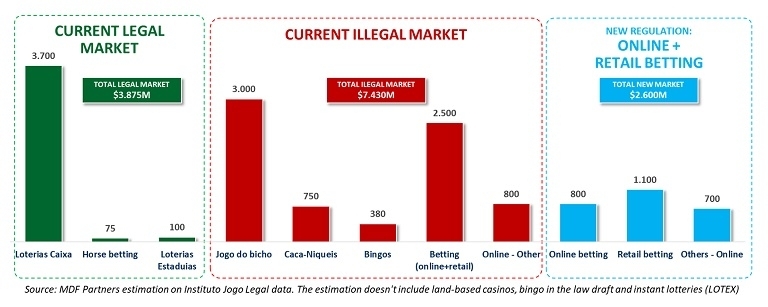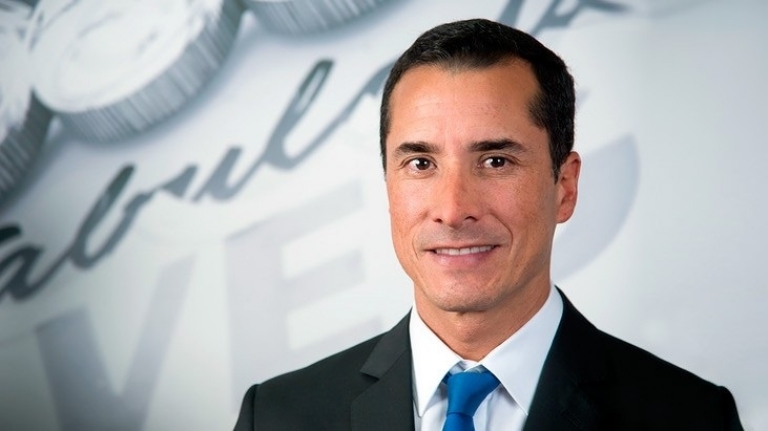


I think that a public consultation is always a very positive process because the exchange of information in a regulatory process between the regulator (in this case, the Ministry of Economy) and the operators will always provide elements, which can improve the overall ultimate regulatory framework. In my opinion passing from an authorization to a concession-based model is a positive move. A competitive bidding process is the model which has been adopted in many countries.
Even if at the moment we see a maximum number of 30 operators, which seems to be the limit proposed, I would not be surprised if the Ministry of Economy, commissions a technical study, as was done for the Lotex concession, aimed at acquiring many more elements clarifying eventually in detail the terms, the value of the concession and the technical requirements, which at the moment in this Draft Decree are missing. I think it is clear to everyone that the existing text is not complete, yet. I believe that the public consultation should be considered a moment of great transparency, which does not always occur in the process of regulating the gaming sector.
It is also very positive to see in a draft decree measures against illegal gambling, protection against money laundering, sports corruption and initiatives to promote the culture of social responsibility, responsible gaming and the fight against illegal betting.
I hope that the limit of 30 operators can be reconsidered. For a country such as Brazil, 30 licenses are not that many, and this can be a potential threat to the legal market and the sustainability of the model itself. Reducing the threat of the illegal market would not only mean offering everyone the opportunity to transparently participate in the creation of a new market, but above all protecting the consumer from possible interactions with operators without a concession and therefore without any control in terms of money laundering, sport integrity and responsible gaming.
In Italy, for example, where there are 60 million inhabitants, the regulator, through a public procurement process, proposed 200 concessions only for the digital channel.
This is just an example to qualify different approaches and in this specific case to clarify how, in a market potentially much smaller than the Brazilian one, even if a nearly mature one, but with a passion for sport that is not comparable to Brazil (besides football), the government in order to fight the illegal market resorted to take a much more open and liberal approach.
I think that the text of the Draft Decree itself should be considered as a reference and a provisional measure until all missing elements are consolidated and can contribute to enhance the overall betting regulatory framework.

It is not a surprise that the Brazilian fixed odds betting regulation will be subject to a new evaluation and consequently a new delay in the process to have an adequate regulation to capitalize on the promising Brazilian sports betting market.
The new regulation draft supposes a big change in the licensing process, going from an open competitive environment to a limited number of licenses under a tender bid process.
Nothing wrong with the tender (I prefer a free open licensing market though), it could in fact much cleaner; grants more protection to a limited number of operators; but it also limits the access of a larger number of incumbents, which is not bad itself either - we all know that regulated markets finally end with over 75% of the market share in hands of half a dozen of qualified and more experienced operators – but the Brazilian market is significative and there could be space for more incumbents to compete.
The first 30 obtaining the licenses within the first tender call will have a substantial advantage for being first to market, despite the fact that the process seems to enable the administration to make further tender calls, but those coming 2-4 years after the first call will find a much matured and competitive market and will struggle to get a portion of the market share to survive. Time to market is of essence in this business.
But having said that, what matters here is which will be the business model as a whole, so that the operators can evaluate the opportunity to enter into this long waited and promised market, a few issues shall be established thinking on the interest of the administration to preserve the large – majority – size of the offer under the regulated environment, for what they must allow the operators to have a complete competitive offer and obtain a sustainable business performance, as well as: i.e. – a regulation to allow retail and/or digital, or both combined for a well-designed omnichannel configuration; a reasonable taxation rate based on gross gaming revenue – GGR – which should be in the 15% region; if there will be a complete offer of content and markets; well established advertising, marketing and sponsoring framework, responsible gaming issues in place, preserve the integrity of sports in a very commercialized environment, etc.
I think that there have been, and still are, lots of people giving opinion with probably not much concern about the viability and sustainability of the regulatory framework to achieve the goals in a market inundated with a huge offshore offer, which shall be migrated to the regulated environment and provide with the adequate model to prevail over the non-regulated offer.
Now they must put together a really serious regulator’s agency to deal with all the process, with transparency and integrity but also and foremost, with people knowing what to do, and do it well, because this initial process I have a hunch will be complicated to develop without a few hiccups.
The compliance, technical and operators’ requirements must be in place and contrasted with existing experienced jurisdictions and nowadays should not be a problem to have the right specifications and requirements in place, to which all operators are used to.
The government agency responsible for the gambling sector and in this case the sports betting segment, must know and have very clear what to do and have a road map to follow, otherwise can be chaotic.

Brazil is one of the the most promising market in Latin America, and it presents a lot of opportunities for operators and other industry actors. In fact, according to our estimations, the Brazilian betting market, including online and retail, is around $2,6bln GGR, a figure that will be highly conditioned to the regulatory model defined for the country.

In this sense SECAP is doing a great job to make things happen. After the publication of the Law 13.756 of December 12, 2018, there have been several changes in the direction of the regulation in Brazil, and the last, where a concession for up to 30 operators is defined, may have an important impact in the potential evolution of the sector.
In general, measures that try to artificially limit the market, are not positive and directly affect the adequate development, growth and self-adjustment of the market. It is hard and risky to measure or define a priori the adequate number of operators. The experience in other countries shows that it generates more problems and limitations than it solves.
That's why my recommendation is not to define a limit on the number of operators, especially for a market like Brazil, where the impact of the unregulated offer is very strong. Imposing a limit on the number of operators could be an additional push for the illegal offer.
Moreover, it’s important to consider that the situation with betting taxes is still unclear. Based on the current model, it may reach around 40% of the operator GGR (gaming tax + PIS + COFINS + ISS), a figure that will, for sure, mean another push for the illegal market. Measures to reduce tax incidence are strongly recommended to protect the sector.
The lesson learned from the experience of mature regulated environments, is that proper selection requirements, affordable taxation, omni-channel approach and measures to protect the customers are by far more effective drivers, than operators number limitation, to shape an appropriate regulation model, fine tune the suitable market size and reach the correct equilibrium of the players in the ecosystem.

To date, Brazil is, without doubt, the Latin-American market with the highest expectations in the Gaming Industry. I am not a Brazilian Lawyer; however, for foreign observers like me, it’s certainly encouraging to learn that the Brazilian jurisdiction –through the Ministry of Economy– continues denoting with tangible steps the intention of advancing and improving in the implementation of a sports betting regulation in Brazil.
However, when our clients (mostly heavily regulated and publicly traded technology companies) ask us for our opinion on the Brazilian and other Latin-American markets –including Mexico; our law firm always recommend, firstly, to retain reliable and reputable local advice, and then, study and fully understand the peculiarities of each jurisdiction.
In the particular case of Brazil, in the last decade of my professional practice I have personally perceived very consistently that there are a lot of variabilities within the political context of such country that make it difficult for international companies to make an accurate forecast on the date on which legalization of gambling will really be finalized.
On the other hand, after several years, it seems that the Brazilian Government still lacks a clear plan to combat illegal gambling, which in my experience and in the eyes of certain international Gaming Industry connoisseurs, remains as the “elephant in the room” in this highly complex and sophisticated political and economic equation.
Source: Exclusive Games Magazine Brasil